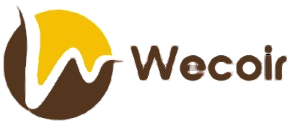
Wecoirseo1035
Uploaded on May 2, 2025
Category
Business
Top manufacturer of Orthocoir Sheets, Coir Cake, China Coir, and Coir Packing Sheets. Offering high-quality, sustainable, durable, and eco-friendly coir products for various industrial needs. https://wecoir.com/service/
Category
Business
Harnessing Nature Coconut Fiber Sheets for a Greener Tomorrow
Harnessing Nature:
Coconut Fiber Sheets for
a Greener Tomorrow
Sustainable Innovation with Coconut Coir
Products
Introduction to Coconut
Coir
• A natural coconut coir fiber extracted from
the husk of coconuts, commonly used in
agriculture, horticulture, and manufacturing.
• Two main types: Brown coir (from mature
coconuts, used in mats, brushes) and White
coir (from immature coconuts, used in ropes,
fishing nets).
• Eco-friendly, biodegradable, water-retentive,
and resistant to saltwater and microbial
degradation.
• Used in mattresses, ropes, mats, brushes, and
as a growing medium in horticulture.
What are Coconut Fiber
Sheets?
• Coconut fiber sheets are compressed
mats made from coir fibers, derived from
the outer husk of coconuts.
• They are biodegradable, sustainable, and
commonly used as an alternative to
synthetic materials.
• Strong, breathable, moisture-resistant, and
provide excellent insulation and cushioning.
• Widely used in mattresses, furniture
padding, soundproofing, and agricultural
liners.
Why Coconut Coir
Products?
1. Eco-Friendly & Sustainable: Made from
renewable coconut husk, coir products are
biodegradable and environmentally safe.
2. Durable & Versatile: Highly resistant to
wear, rot, and saltwater, making them ideal for
diverse applications.
3. Natural Insulation: Excellent thermal and
sound insulation properties for use in
construction and furnishing.
4. Agricultural Benefits: Used as a growing
medium due to high water retention, aeration,
and root-supporting structure.
Environmental
Benefits
• Biodegradable: Naturally decomposes
without harming the environment, reducing
landfill waste.
• Renewable Resource: Made from
coconut husks - a byproduct - promoting
sustainable resource use.
• Reduces Plastic Use: Eco-friendly
alternative to synthetic fibers in packaging,
mats, and horticulture.
• Low Carbon Footprint: Processing
requires minimal energy compared to
synthetic materials, lowering emissions.
Applications of
Coconut Fiber
Sheets
• Mattress & Cushioning Industry: Used
as a natural padding material for
mattresses, sofas, and cushions.
• Automotive Interiors: Applied in car
seats and door panels for insulation and
comfort.
• Sound & Thermal Insulation: Used in
construction for eco-friendly
soundproofing and heat insulation.
• Horticulture & Landscaping: Acts as
liners for hanging baskets and erosion
control in landscaping projects.
Innovation in Green
Construction
• Sustainable Building Materials: Use of eco-
friendly materials like coconut coir, bamboo,
and recycled steel to reduce environmental
impact.
• Energy-Efficient Design: Incorporating
passive solar design, energy-efficient HVAC
systems, and smart technologies to reduce
energy consumption.
• Waste Reduction & Recycling:
Implementing construction waste management
practices and recycling materials for new
projects.
• Green Roofs & Urban Farming: Integrating
green roofs, vertical gardens, and urban
farming solutions to improve air quality and
reduce heat island effects.
Coconut Fiber Sheets vs.
Synthetic Alternatives
SYNTHETIC
FEATURE COCONUT FIBER SHEETS
ALTERNATIVES
Eco-Friendliness Biodegradable Non-biodegradable
Durability High Varies (Generally lower)
Water Resistance Excellent Moderate
Insulation Natural Artificial
Renewability Renewable Non-renewable
Market Trends &
Demand
• Eco-Product Growth: Increasing
consumer preference for sustainable,
eco-friendly materials.
• Green Construction: Rising use of
natural materials like coconut coir in
green building projects.
• Global Popularity: Coconut coir
gaining traction across international
markets for various applications.
• Agricultural Shift: Surge in demand for
eco-friendly growing mediums in
agriculture and horticulture.
Challenges &
Opportunities
• Supply Chain Issues: Limited
availability and seasonal fluctuations in
coconut husk supply.
• High Production Costs: Initial
processing and production can be labor-
intensive and expensive.
• Lack of Awareness: Limited consumer
knowledge about the benefits and uses
of coconut coir.
• Competition from Synthetic
Materials: Strong market presence of
cheaper synthetic alternatives.
We Coir – Leading the Change
• Technological Innovation: Adopts
advanced manufacturing techniques to
produce high-quality coir sheets.
• Eco-Friendly Products: Uses sustainable
coconut fibers, promoting a green and
biodegradable solution.
• Durability & Comfort: Offers long-lasting,
supportive, and hypoallergenic coir
mattresses for healthy sleep.
• Industry Leadership: With decades of
experience, We Coir is a trusted leader in
the coir industry for quality and innovation.
Our Manufacturing
Process
• Sustainable Sourcing: Coconut husks
are harvested responsibly to ensure long-
term environmental health.
• Eco-Friendly Production: Minimal use
of water and chemicals, reducing the
ecological footprint.
• Quality Control: Each product
undergoes rigorous quality checks to
ensure durability and performance.
• Fair Labor Practices: Committed to
community-based operations and fair,
ethical labor practices.
Contact Us
[email protected]
m
www.wecoir.com
9645557586

Comments